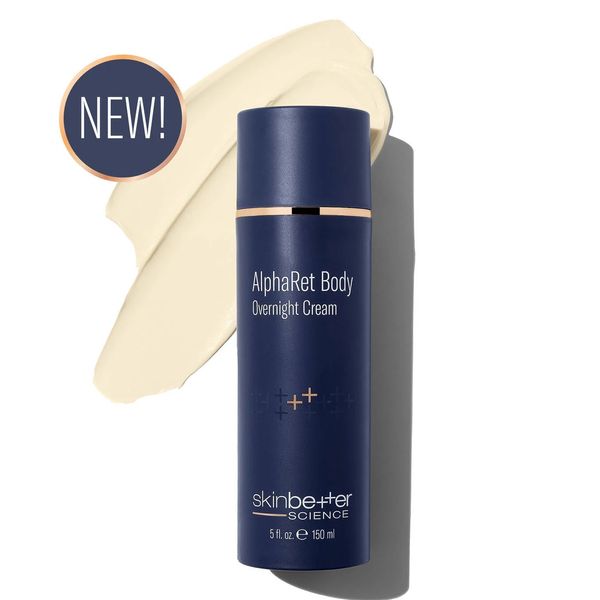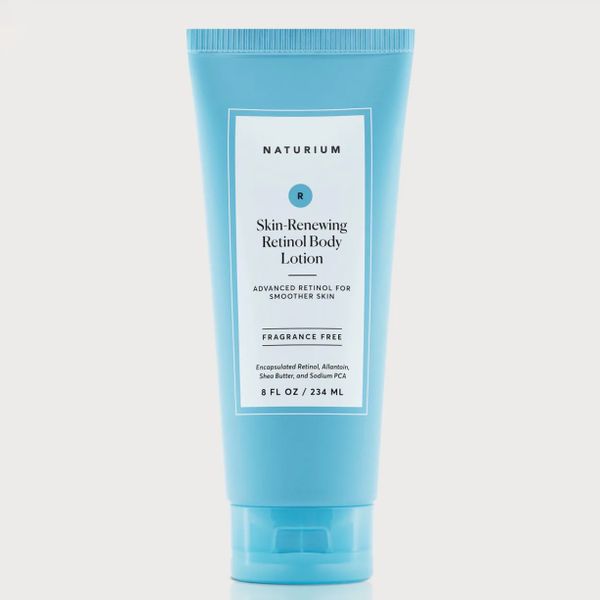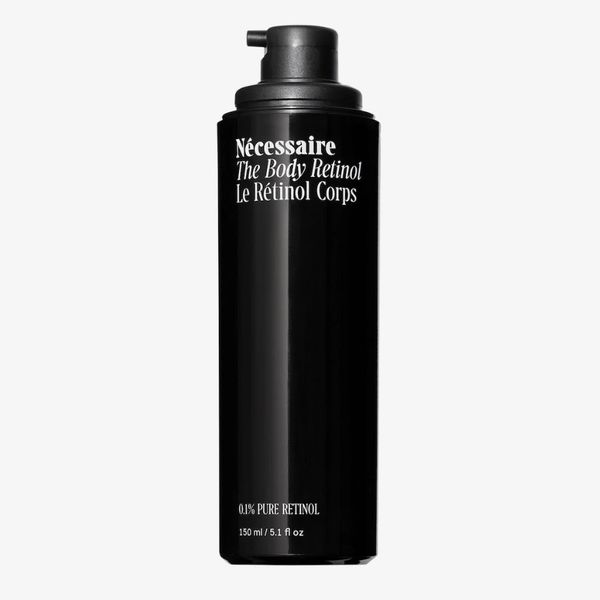
Earlier this year, I started noticing monthly launches of body care as skin care: That is, body lotions and serums with ingredients like lactic acid, niacinamide, and vitamin C that are strong and meant to actually fix skin problems (not just moisturize). I knew retinoids wouldn’t be far behind because they’re one of the most effective skin-care ingredients available. They firm the skin, smooth out fine lines, and reduce hyperpigmentation — all problems I know folks struggle with on the body, too. So I got curious: How would retinoids affect skin on the body? And should we all be using them? I spoke to three experts — a dermatologist and two cosmetic chemists — about the benefits, the potential drawbacks, and what to look for in a body retinoid formula.
So what does a body retinol actually do?
Retinoids work the same on your body as your face. They exfoliate, plump, and smooth out skin by increasing cell turnover. (If you want a more detailed deep dive, I recommend our explainer on exactly what retinol does.) “Retinol is the first recommendation I give my patients for hyperpigmentation, sunspots, fine lines and wrinkles, and stretch marks,” says board-certified dermatologist Dr. Mina Amin. Retinoids also help build elastin and boost collagen production for firmer, less crepey skin.
Those elastin- and collagen-boosting properties are what make a retinol body lotion stand out from those exfoliating lotions or serums I mentioned in the intro. (You’ll get skin-smoothing and clearing benefits but no extra collagen with AHAs, BHAs, and other actives.) That’s also why the price is usually steeper than that of an acid body lotion. Before investing, just note that it takes a lot longer to see results with retinol (sometimes up to eight weeks) compared with the instant gratification of some exfoliants, so be ready to commit.
What should I look for in a body retinol product?
Most over-the-counter body lotions range from 0.03 to 0.1 percent retinol. That’s a big range. Assuming that you’re new to retinoids on your body, start with a low percentage and don’t worry about it being less effective. “At a low dose, the product’s more meant for daily use,” says cosmetic chemist Valerie George. Both George and cosmetic chemist Dr. Julian Sass noted that to see results, focus more on a product you’ll use regularly over percentage. Once your skin has adjusted, you can increase your dosage.
Also look for hydrating formulas with ingredients like glycerin and shea butter to reduce irritation and dryness. Finally, Dr. Sass recommends finding something with a texture and packaging you actually enjoy. A lot of the benefits come from consistency, so having a product you want to reach for helps.
Will retinol body lotion irritate my skin?
The lower dose means less irritation, but it could still dry you out. As with all products with active ingredients, patch test first. Also, avoid applying on areas with thinner and sensitive skin, like the ankles, elbows, and genitals. Other tips for lowering chances for irritation: apply it on completely dry skin, layer it over a regular body lotion for a buffer layer, and start slow — apply twice a week at night.
While you’re using body retinol, daily sunscreen is a must.
As you probably know, retinol increases your skin’s sensitivity to UV rays, so SPF is an everyday necessity. This means wearing sunscreen on the parts of your body that are exposed to the sun and not just your face — including in the fall and winter, even though sun-damage risk is lower. Also, you shouldn’t use retinol if you’re pregnant or trying to become pregnant since high doses of vitamin A have been linked to a risk of birth defects. (For alternatives, we have a roundup of the best skin-care products to use while pregnant.)
So, overall, is body retinol worth it?
If you want to reduce signs of aging or hyperpigmentation, then, yes. The caveat: You have to consistently apply retinol and sunscreen to really see results. That means slathering on a body lotion with SPF almost every day, so keep that in mind. But if you’re in the stage where you’re just trying to prevent aging on your body, you can skip body retinoids for now. Instead, for prevention, George recommends staying out of the sun, using SPF, and adequately moisturizing your skin, which you can do with pretty inexpensive body lotion. “I always tell people the value’s not necessarily in a product; it’s having a routine and prevention,” she says.
Some retinol body lotions we recommend
The Strategist is designed to surface useful, expert recommendations for things to buy across the vast e-commerce landscape. Every product is independently selected by our team of editors, whom you can read about here. We update links when possible, but note that deals can expire and all prices are subject to change.









